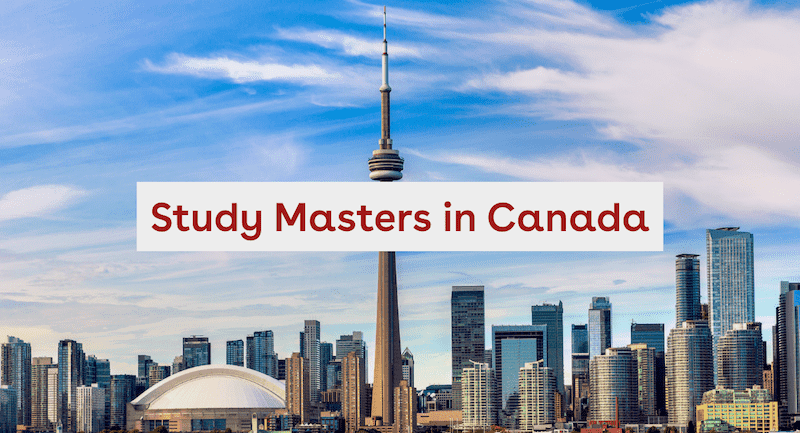Canada has over 100 public universities and is renowned worldwide for its high-quality education and research. It is an attractive destination for international students because of its friendly and culturally diverse environment, and it offers opportunities to work after graduation. Tuition fees may be higher than in some countries, but many believe it is worth the investment.
If you are considering studying in Canada, this article covers everything about pursuing a Master’s degree—from types of degrees, duration, admission process, costs, to student life—so you can make an informed decision.
Master’s Study in Canada 2025
The benefits of studying a Master’s in Canada for international students include:
-
International Outlook: Over 200 nationalities are represented across Canadian universities. Canadian society is known for its diversity and tolerance.
-
Investment in Education: The Canadian government invests heavily in its universities, ensuring the high quality of Master’s programs.
-
Bilingualism: Canada has two official languages (English and French), offering opportunities to learn a new language or improve your existing skills.
-
Post-Study Work Opportunities: Post-graduation work permits allow you to stay and gain work experience in Canada for up to two years.
-
High Quality of Life: Canada provides a safe and stable environment with a high standard of living, making it an ideal place to study.
Key Details for Master’s Study in Canada – 2025
| Feature | Details |
|---|---|
| Number of Universities | 155 |
| Oldest University | Université Laval (1663) |
| International Students | 263,610 |
| Duration | 2 years |
| Typical Tuition (Domestic/EU) | CAD $36,100 (USD $25,142) |
| Academic Year | September to May |
Master’s degrees in Canada are commonly referred to as “Graduate Programs” or “Grad School” and are usually offered as Master of Arts (MA) or Master of Science (MSc or MS in Canada). There are also specialized Master’s degrees such as Master of Fine Arts (MFA), Master of Engineering (MEng), and Master of Business Administration (MBA).
Structure and Duration
Master’s programs in Canada typically last between one and two years and may include internships or practical projects.
Teaching methods combine interactive classes, lectures, and workshops, often including a dissertation or major project that accounts for a significant portion of course credits. Some disciplines may offer a consultancy project instead of a dissertation.
The academic year usually starts in September and continues until the exam period in April, after the Christmas break.
Top Canadian Universities in 2025
| University | THE 2025 | QS 2026 | ARWU 2024 |
|---|---|---|---|
| University of Toronto | 21 | 29 | 25 |
| University of British Columbia | 41 | 40 | 53 |
| McGill University | 45 | 27 | 76 |
| McMaster University | =116 | =173 | 101-150 |
| University of Alberta | =116 | =94 | 101-150 |
Types of Master’s Degrees in Canada
-
MA and MSc: Most common, focused on academic or research-based study.
-
Professional Master’s: Includes MEng, MBA, MFA, and other practical, career-focused programs.
-
Research Master’s: Usually involves a longer dissertation or major project, ideal for those considering a PhD later.
-
Co-op Programs: Combine study with paid, hands-on work experience, helping you build industry connections.
Most programs last 1–2 years and may include seminars, group projects, site visits, or internships depending on the subject.
Assessment and Grading
Assessment in Canadian Master’s programs is based on continuous performance rather than a single final exam.
Common evaluation methods include:
-
Coursework and essays
-
Presentations and group projects
-
Practical work or lab sessions
-
Dissertation or major project
Grades are assigned using a letter system (A–F), with A typically representing 80% or above, and B ranging from 70–79%. To pass, you usually need to maintain at least a B average throughout your studies.
Practical Tips for Students
-
Start your research early, as popular programs fill up quickly.
-
If your program offers Co-op placements, apply as soon as possible for valuable hands-on experience.
-
Budget properly and prepare for Canada’s cold winters.
-
Seek guidance from current students or alumni—they know shortcuts and tips that official guides don’t cover.
Frequently Asked Questions
-
Can international students work while studying?
Yes, typically up to 20 hours per week during term time and full-time during breaks. -
What is a Co-op program?
A Co-op allows you to gain paid, hands-on work experience related to your field, usually lasting 2–4 months. -
Do I need to speak French?
Not necessarily. Most programs are in English, although some in Quebec may require basic French skills. -
Can I stay in Canada after graduation?
Yes. Graduates can apply for a Post-Graduation Work Permit (PGWP) to stay and work in Canada for up to two years. -
Are scholarships available for international students?
Yes. Many universities and the Canadian government offer merit- or research-based scholarships. Check each university’s website for details.
Pursuing a Master’s degree in Canada is an incredible opportunity for academic, professional, and personal growth. If you are planning to immigrate to Canada and continue your studies, this path can provide a valuable and life-changing experience.
